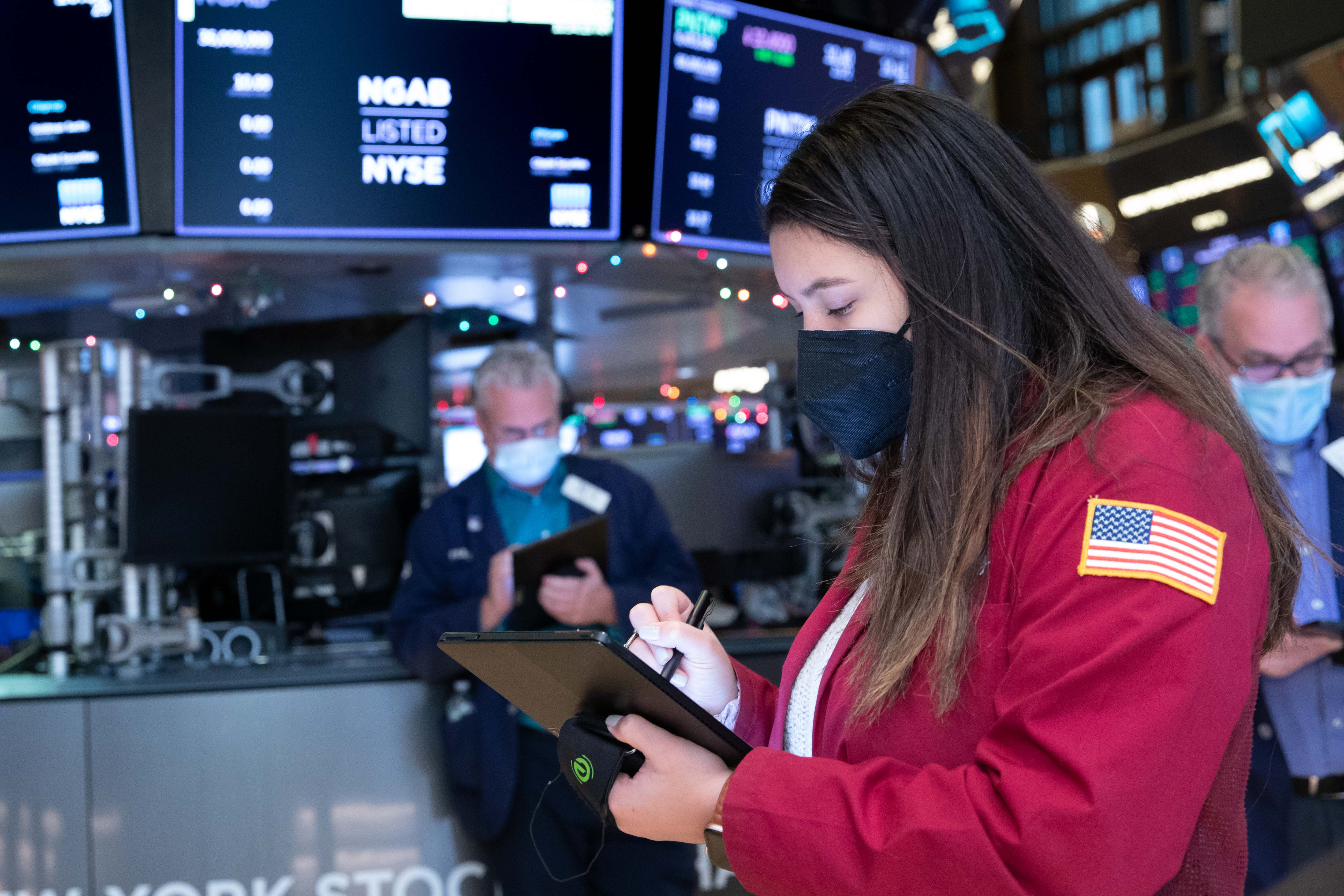
Here are the most important news, trends and analysis that investors need to start their trading day:
1. Dow set to slide after bank earnings, Biden stimulus plan
Dow futures pointed to an over 100 point loss at Friday's open, with Dow-stock JPMorgan Chase down despite reporting better-than-expected quarterly earnings and revenue. Investors were also studying President-elect Joe Biden's $1.9 trillion coronavirus stimulus plan announced after Thursday's market close.
The Dow Jones Industrial Average fell 68 points Thursday in a continuation of muted market moves this week, mostly to the downside, as Wall Street also grappled with the second impeachment of President Donald Trump and the fallout from last week's riot at the U.S. Capitol. However, the Dow, S&P 500 and Nasdaq remained less than 1% away from the record highs. The stock market is closed Monday in observance of Martin Luther King Day.
2. JPMorgan kicks off a flood of bank earnings
JPMorgan on Friday reported fourth-quarter profit and revenue that exceeded Wall Street estimates. The bank posted per-share earnings of $3.79, boosted by releasing money previously set aside for loan losses. Revenue for the quarter was $30.16 billion. However, shares of JPMorgan fell about 2%, taking a breather from their recent strong run-up.
Shares of Citigroup dropped more than 1% after the bank fell short of estimates on fourth-quarter revenue of $16.5 billion. Per-share profit of $2.08 beat expectations — and like JPMorgan, it was helped by the release of some loan loss reserves.
Wells Fargo shares sank over 4% after the bank reported lower-than-expected revenue of $17.93 billion. Q4 earnings of 64 cents per share, like both Citi and JPMorgan, best estimates. At Wells Fargo, stabilizing credit costs helped offset the hit from low-interest rates.
3. December retail sales, producer prices out
Retail sales for December fell 0.7% compared to flat expectations as renewed measures to slow the spread of Covid-19 undercut spending at restaurants and reduced traffic to shopping malls. Data for November was revised down to show sales declining 1.4% instead of 1.1% as previously reported. Producer prices for December increased 0.3%, slightly less than expected. Excluding food and energy, producer prices rose 0.4%, higher than estimates.
4. Biden proposes $1.9 trillion in Covid relief
Biden's proposed $1.9 trillion in coronavirus stimulus package includes support for U.S. households and businesses as the pandemic rages. Here are some of the major provisions of the president-elect's plan:
- Direct payments of $1,400 to most Americans, bringing the total relief to $2,000, including December's $600 payments
- Increasing the federal unemployment benefit to $400 a week and extending it through the end of September
- Increasing the federal minimum wage to $15 per hour
- $350 billion in state and local government aid, which Republicans had fought to exclude from December's $900 billion compromise bill.
- $50 billion toward Covid-19 testing
- $20 billion toward a national vaccine program in partnership with states, localities and tribes
5. National Covid vaccination program takes shape
Biden on Friday is expected to provide more details on his national Covid vaccination program, funded by his relief plan.
The president-elect on Thursday unveiled a sweeping blueprint to combat the pandemic, which included the vaccine program as well as massively ramping up testing to support school reopenings and creating 100,000 new health-care jobs.
Biden's Covid plan includes investing in new treatments beyond existing monoclonal antibody infusions and Gilead Sciences' antiviral drug remdesivir. Trump received remdesivir as part of his treatment for Covid in the fall.
— Reuters contributed to this report. Follow all the developments on Wall Street in real time with CNBC Pro's live markets blog. Get the latest on the pandemic with our coronavirus blog.
https://ift.tt/3bISQMX
Business
Bagikan Berita Ini














0 Response to "5 things to know before the stock market opens Friday - CNBC"
Post a Comment